
Career Switch
Your first job is rarely your last. In fact, many Americans change occupations a half-dozen times. Four alumni describe how UT Arlington prepared them to succeed in professions vastly different from their original ones.
· Spring 2013 · Comment ·
A wall street financier dreamed of making a difference. An aircraft mechanic was laid off. An engineer faced a health crisis. An Air Force veteran pondered his next move. Career change happens all the time, but researchers say the instances have increased dramatically as the Great Recession and shifts in the workplace make some jobs obsolete. No official statistics plot career do-overs, but some experts place the number as high as seven in a lifetime. A Bureau of Labor Statistics study found that people born from 1957 to 1964 held 11.3 jobs from ages 18 to 46.
“The world we lived in 50 years ago where people chose a career and stuck with one employer until retirement no longer exists,” UT Arlington management Associate Professor Wendy Casper says. “The workforce is changing so much, so fast. People have to adapt. The job you start might not even exist a couple of decades later.”
UT Arlington helps students pursue career changes by offering flexible programs and online courses to accommodate families and jobs, and by strongly emphasizing career counseling and advising. Meet four professionals who turned to the University to launch new careers.
LUIS REYES-ARRIAGA ’09, ’10
BEFORE: Air Force veteran, AFTER: Professor
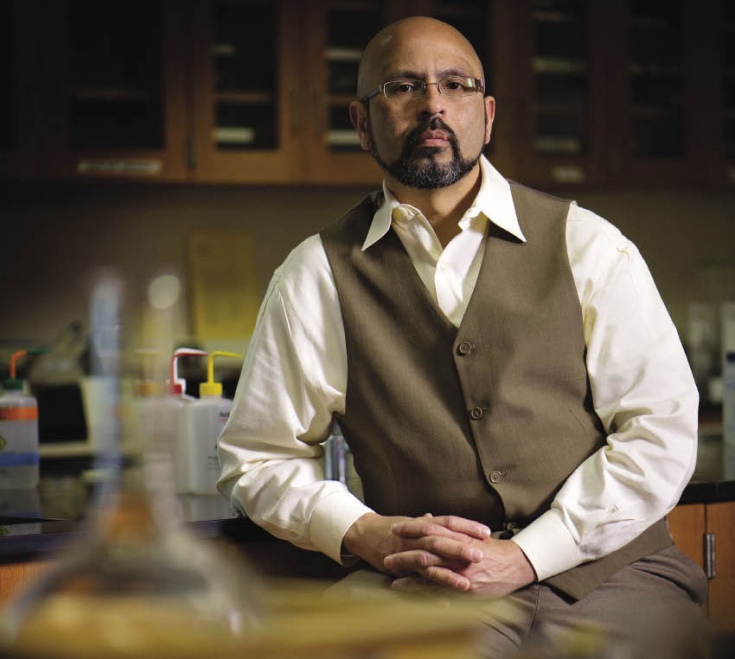
SERVICE OF A DIFFERENT KIND
For Luis Reyes-Arriaga, retirement provided an unexpected opportunity. He spent 27 years in the Air Force, training pilots and other aircrew members at the Naval Air Station Fort Worth Joint Reserve Base to use survivor equipment in case of a plane crash.
The Puerto Rico native retired in 2006, and boredom struck within a week. He had completed a bachelor’s degree in chemistry before joining the Air Force and wanted to continue serving his country. He could think of no better way than education.
“I realized what this nation really needs is people to educate our future generations. Education is a matter of national security,” he says. “We have a generation of children that is suffering from lack of a good education, and I worry we are losing our edge on technology and innovation.”
Reyes-Arriaga, 51, enrolled in UT Arlington’s chemistry doctoral program with plans to teach at an area public school. But the husband and father soon realized that pursuing a Ph.D. would place too much stress on his family. After talking with University advisers, he opted for master’s degrees in chemistry and education, which he completed in 2009 and 2010.
Returning to school after so many years proved difficult but rewarding.
“I hadn’t touched a chemistry book in 20-some years. I hadn’t written a paper in even longer. It took a while to get back on track, but I was eventually surprised at how much came back to me. It felt natural.”
Professors and advisers helped Reyes-Arriaga apply for financial aid, and he received a Robert Noyce Teacher Scholarship, funded by the National Science Foundation to promote science, technology, engineering, and math education.
While still a student, Reyes-Arriaga began searching for jobs and landed a position as an adjunct professor at Tarrant County College. In 2010 the college hired him full time, and he now teaches chemistry to science and non-science majors.
“Sometimes I find myself smiling,” he says. “I cannot believe I got this shot at a second life.”
JENNIFER BLOXHAM ’11
BEFORE: Engineer, AFTER: Nurse
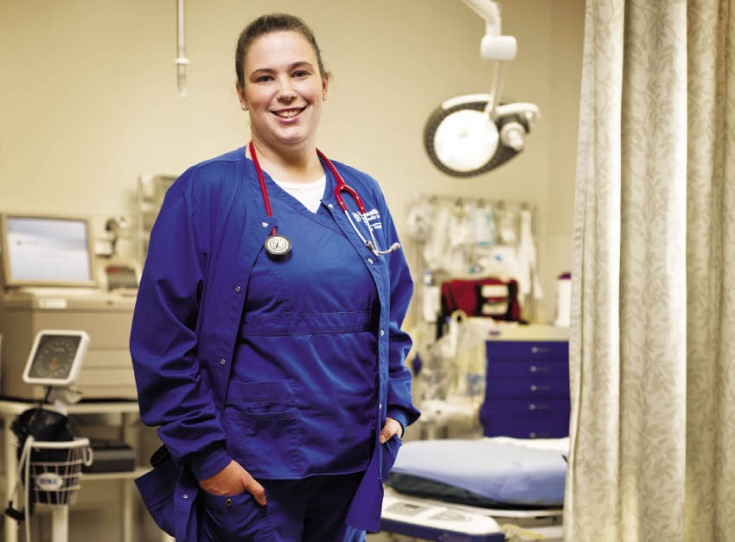
DISCOVERING THE NURSE WITHIN
Nursing never occurred to Jennifer Bloxham. Growing up, the sight of blood made her queasy. So she studied aerospace engineering and worked as a flight test engineer at Lockheed Martin in Fort Worth, helping develop the country’s new fighter, strike, and ground attack aircraft.
Then in 2006 complications from appendicitis left her seriously ill.
“I learned I needed to become my body’s advocate,” Bloxham says. “I had to learn the best place to put an IV, why certain medications made me sick, why this was even happening. I wanted to understand my body on a deeper level.”
A surgeon even joked that Bloxham missed her calling to be a doctor or nurse. In her spare time, Bloxham, who was just completing an MBA, began researching nursing requirements and told her husband she wanted to leave engineering to become a nurse.
“He told me I was crazy,” she says. “My parents really thought I was insane.”
One year later she became pregnant and was placed on bed rest. Unable to work, she finally decided to pursue nursing prerequisites. Drawn by online offerings, affordability, and convenience, she enrolled in UT Arlington’s College of Nursing in 2010.
Merging parenthood and a full class schedule was daunting, she says, but professors and advisers provided invaluable encouragement. Once, when she was hospitalized, the college’s student success coordinator helped her get in touch with instructors to make up work.
“The professors were right behind us,” she says. “They wanted us to succeed.”
Bloxham, 33, graduated in December 2011 and now works as an emergency room nurse at Texas Health Resources in Burleson. In some ways, aerospace engineering prepared her for a nursing career. Both require a holistic, system-wide approach.
“The body is a very complex system. It has lots of parts that don’t always play nicely together, and an airplane is the same thing. You have a headache, but it might be because of a heart medication you’re taking. Your wheels might not be going down, but it could be because the strut is not in the right place.”
Bloxham is now considering a Ph.D. in nursing and eventually wants to teach. “But when you start talking about your fourth degree,” she says, “people really start to think you’re crazy.”
RUSTY PREWITT ’08, ’09
BEFORE: Aircraft mechanic, AFTER: Airline executive
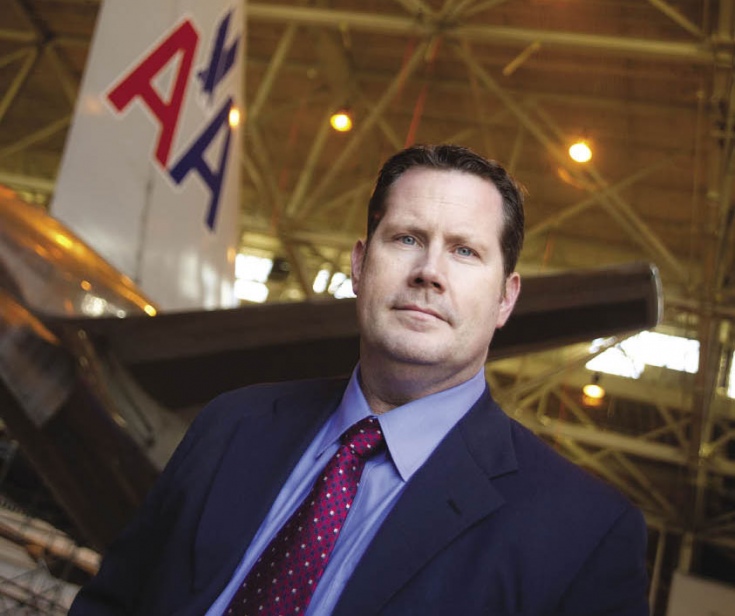
UPWARD TRAJECTORY
In 1989 Rusty Prewitt landed a job as a baggage handler for American Airlines. A decade later he decided he wanted more out of a career and signed up for aircraft mechanic training. In 2001 he watched with his classmates in Fort Worth as a second airplane crashed into the Twin Towers. He felt paralyzed.
“I knew instantly that my life, my profession, my company, and my industry were changed forever. It hit like a brick in the face. I knew this was game changing.”
He was right. Two years later he was laid off and forced to take a lower-paying job in Chicago. Six months after that he returned to North Texas with an even bigger pay cut. At a crossroads, he decided to go to college and major in finance.
“With little education, my options were limited,” he says. “My lack of marketability made it difficult to find another job.”
Prewitt fell in love with the university experience, and professors and mentors helped him navigate the challenges of managing work, family, and school. “It was empowering. I realized all you have to do is try and give it your best and you’ll get through it. It built up my confidence and convinced me to continue my education.”
He enrolled in UT Arlington’s dual master’s program in business administration and human resources management, earning degrees in 2008 and 2009. At American Airlines he jumped from aircraft maintenance technician to account manager to senior analyst to organization development consultant to regulatory compliance manager.
Recently he was promoted to manager of regulatory affairs, where he handles correspondence with the Federal Aviation Administration. He’s also an adjunct professor at UT Arlington, teaching negotiation and conflict resolution in the College of Business.
Prewitt, 42, says his combination of operational experience and education has helped him stand out in the marketplace. Juggling everything was trying at times, but he says the perseverance paid off.
“It was absolutely worth it. Going to college helped me change the trajectory of my life and career.”
MADELINE MCCLURE ’97
BEFORE: Wall Street financier, AFTER: Children’s advocate
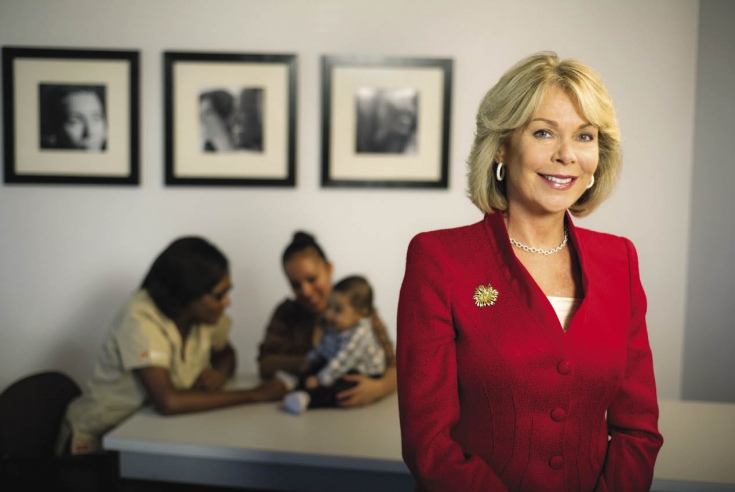
DRIVEN TO MAKE A DIFFERENCE
Just out of college, Madeline McClure needed a job that paid well. She found one at a Wall Street firm. Over the next decade she climbed from office administrator to research associate to assistant vice president and, finally, to vice president.
“I was driven to make money in the go-go 1980s,” she says. “And it was a fascinating, lovely lifestyle, but it was never the perfect fit.”
In 1989 a business acquaintance was brutally attacked in what became known as the Central Park jogger case. McClure was outraged, consumed with the incident, and it stirred a long-dormant fascination with psychology and sociology.
“Something about the case stuck in my brain. I knew there were so many big issues well beyond the confines of Wall Street that we needed to be dealing with. I asked myself, ‘What drives someone to perpetrate this type of behavior against another human being?’ ”
Deciding she wanted to be a therapist, McClure enrolled at New York University to study social work. In 1995 she moved to Dallas with her husband, a native Texan, and transferred to UT Arlington’s School of Social Work.
Two classes changed her life. A course in community action planning, taught by Professor Richard Schoech, helped her realize she could make broad and systemic changes through community-based work. In another, taught by Professor Wayne Duehn, she saw the far-reaching effects and devastating consequences of child abuse.
McClure graduated in 1997 with a Master of Social Work degree and began working as a child abuse therapist for the Dallas Children’s Advocacy Center and volunteering for numerous advocacy organizations. In 2000 she launched the Abuse Prevention Advocacy Commission. Two years later the organization helped defeat a bill that would have dismantled Child Protective Services’ ability to respond to cases.
Colleagues urged McClure to start a statewide advocacy organization, and in 2004 she founded TexProtects: The Texas Association for the Protection of Children, which aims to prevent child abuse, improve treatment of victims, and provide accessible mental health services. The organization has grown from a budget of $50,000 and one full-time employee to $750,000 and seven full-time workers.
Named a UT Arlington Distinguished Alumna in 2004, McClure credits her Wall Street time with making TexProtects an effective organization.
“You don’t find too many social workers with a background in economics and finance,” she says. “We’re not just pounding our fists on the table and saying, ‘Save these kids.’ We have to appeal to both sides of the aisle. We have to show why this is a wise investment for our tax dollars. But of course, I pound my fists, too.”
McClure now urges others to find a way to transform their passion into a living.
“When you look at career changes, it’s not always about a 180-degree shift. It’s really about returning to where we should have been all along. There is almost nothing you can’t do if you’re really hungry and have a burning desire to make a difference.”
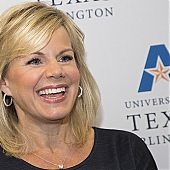
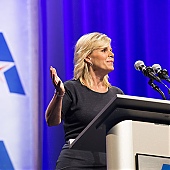
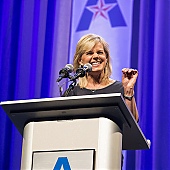
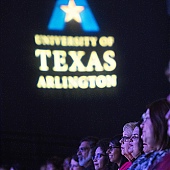
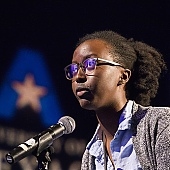
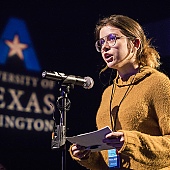
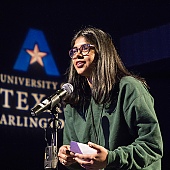
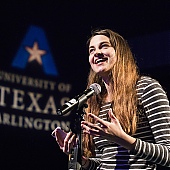
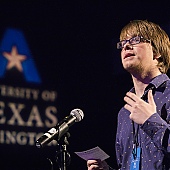
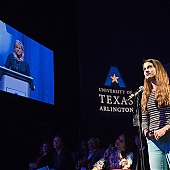
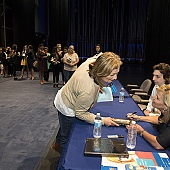
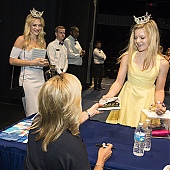
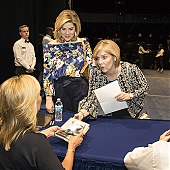
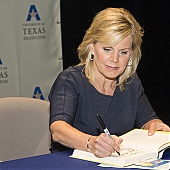
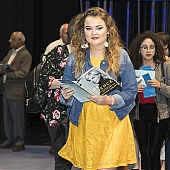
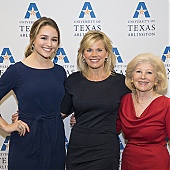
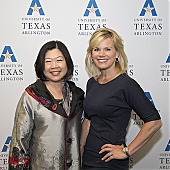
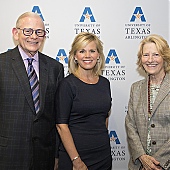
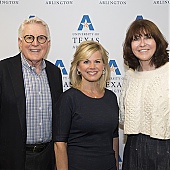
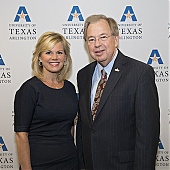

Great, great stories. GO MAVS